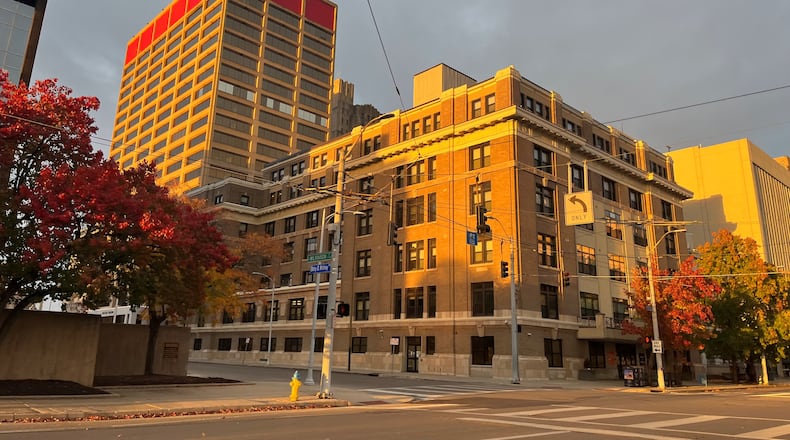The Dayton City Commission recently approved distributing $1.5 million in grants to recommended community projects as part of the Dayton Recovery Plan.
The plan is a blueprint for how the city expects to spend the $138 million it received in federal COVID rescue funds.
Dayton proposes to spend more than $6.5 million on projects that aid the community, and the city has now awarded more than three-fourths of that funding, according to city estimates.
“These are investments that are highly prioritized by the commission and the community and are significant for our community,” said Dayton City Manager Shelley Dickstein.
YWCA Dayton and Five Rivers
The YWCA Dayton and the Five Rivers Health Centers will each receive grants worth $500,000.
YWCA has spent more than $20 million renovating the five upper floors of its seven-story downtown building, which was constructed in 1913, said Shannon Isom, CEO of YWCA Dayton.
YWCA plans to renovate floors 1 and 2, and first-floor improvements hopefully will give children and families who reside at the shelter more things to do, Isom said.
Five Rivers Health Centers is the fiscal agent and a partner on a project to build an aquaponics garden and community center at 919 Miami Chapel Road in the Edgemont neighborhood.
The project will be near Five Rivers Health Centers’ new $31 million health care facility and campus, which had a grand opening in May.
This project will create a new green and sustainable community center that helps combat food insecurity in the area, said Stephen Ross, executive director of the Greater Edgemont Community Coalition.
The project is expected to create a learning kitchen, classrooms and an aquaponics center, Ross said, and new building replaces an old community center that burned down years ago after being struck by lightning.
Food pantry and exam rooms
Dayton also will give grants that are each worth $250,000 to Catholic Social Services of the Miami Valley and the Grandview Foundation.
Catholic Social Services is going to renovate its Eckerle Administration Center building at 922 W. Riverview Ave. in northwest Dayton.
Catholic Social Services serves more than 20,000 people each year, and its administration office building is the only food pantry in the city that operates every weekday, said Laura Roesch, CEO of the agency.
The agency is adding on 5,500 square feet to its building that will help expand the food pantry, which provided more than 20,000 food distributions last year, Roesch said.
“We distributed over 1 million pounds of food,” she said.
The $250,000 to the Grandview Foundation will help pay for point-of-care testing equipment and furnishings for 28 patient rooms at the Cassano Health Center.
The health center, located at 165 S. Edwin C. Moses Blvd., serves underinsured and underserved community members, and tens of thousands of patients visit the facility each year, said Richard Manchur, president of Kettering Health Dayton.
“This is going to give us a chance to increase capacity and space by almost 20% and allow us to provide much-needed telehealth and behavioral health services, as well as specialty clinic operations there,” he said.
The center is Dayton’s largest local provider of primary and specialty care for the “medically underserved,” city documents state.
The Cassano Health Center is undergoing about $3.7 million in upgrades meant to modernize the facility and expand services, Manchur said.
Dayton still has only spent a fraction of its COVID recovery funds, and many proposed investments have not yet started or barely begun, such the proposed demolition of hundreds of homes across the city and upgrades to city properties.
About the Author




